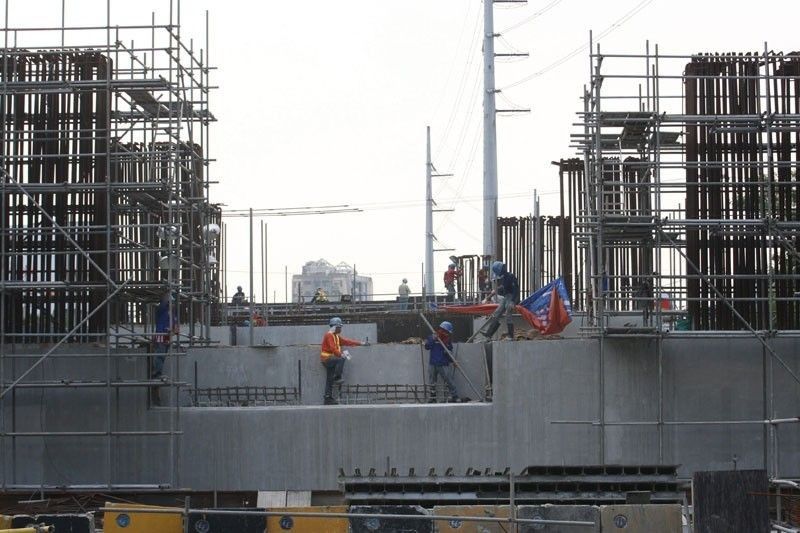Commentary: PPPs key to infrastructure building amid pandemic

The coronavirus disease-2019 (COVID-19) pandemic has laid bare critical gaps in our country’s infrastructure. While many unknowns around the disease remain, we can be certain that directing infrastructure investments toward key sectors will go a long way in mitigating the pandemic’s impact, aiding the country’s recovery, and making sure that we are better prepared for the next public health threat that comes along.
With public funds being increasingly diverted toward pandemic response and relief efforts (and rightly so), it is an opportune time for the government to leverage creative approaches to infrastructure development. Procurement alternatives such as public-private partnerships (PPPs) can help relieve the massive fiscal burden that it faces while offering a number of other valuable benefits.
Build, build, building for a resilient future
If there is one area that demands immediate capital infusion, it is public health infrastructure. Over-capacitated hospitals and limited testing capabilities have revealed the need for more and better quality healthcare facilities across the country. This is something that the government recognizes: National Economic and Development Authority (NEDA) Acting Director-General Karl Chua has recently issued a statement saying that the agency will review the administration’s “Build, Build, Build” program to reprioritize such projects.
But an effective response to the virus calls for more than just research, testing, and treatment facilities, just as the reach and implications of the pandemic extend well beyond health. Parallel investments must also be made in sectors such as public housing, transport, education, and water, to make sure that every Filipino, including the least endowed among us, has the means to observe social distancing measures and practice proper hygiene. With global trade and supply chains under strain, the case for spending on agriculture and logistics networks to ward off shortages and price hikes in food, medical supplies, and other essential goods, is stronger than ever. Furthermore, as interactions migrate and remain restricted to the online world, robust information technology systems are likewise becoming increasingly imperative.
Investing in these strategic areas will not only ensure that we are sufficiently equipped to face the present pandemic, including possible resurgences, but will likewise make us more resilient to potential outbreaks and other future external shocks in the future, including natural calamities. As restrictions are eased, infrastructure spending can also play a vital role in restoring activity and employment in an economy now gripped with weak demand, widespread job losses, and mounting business closures. The economic multiplier of infrastructure investment is widely regarded as superior to that of most other fiscal interventions; NEDA previously pegged our country’s infrastructure multiplier by around three times the amount of spending.
The case for PPPs
The need for more infrastructure is clear. But how can the government possibly pay for huge capital outlay requirements in the face of competing budgetary priorities? To date, a whopping P380 billion has been earmarked under the Bayanihan to Heal as One Act for the pandemic response. The government’s debt is projected to account for 49.8% of economic output by year-end from a record-low of 39.6% last year. As the pandemic drags on, further budget realignments are all but certain. With infrastructure originally accounting for the largest share— 24% of the outlay—of the proposed 2020 budget, it is not difficult to imagine that spending in this area will have to give way in order to free up scarce funds.
PPP, defined formally as long-term contractual arrangements between the government and a private proponent for the delivery of a public asset or service, represent one solution. By transferring the responsibility of shelling out investment capital to the private sector, the government can be relieved of the burden of supplying at least the initial financing for projects and thereby keep huge project costs off its balance sheet. This is true at both the national and local levels.
PPPs can be pursued by almost any government entity, including national departments, state companies, local government units, and even state universities and colleges. Unsolicited proposals, which refer to projects initiated by the private sector, may be especially attractive during this time, given that such projects can come at zero cost to the government. In some PPPs, the government may even receive a portion of project proceeds, as in the case of the ongoing Civil Registry System-Information Technology project, wherein the Philippine Statistics Authority is entitled to 46% of total revenues.
The benefits of tapping the private sector, as well as the latter’s willingness to help out, have been repeatedly affirmed over the past few months. Conglomerates and micro-enterprises alike have been instrumental in expanding quarantine sites, equipping hospitals, procuring test kits, and providing food and personal protective equipment to front-liners. Private stakeholders are crucial in testing, tracing and treating coronavirus patients.
These experiences give us good reason to believe that private players will similarly be keen and able to support the government should it seek assistance in financing and enforcing much-needed infrastructure projects especially in the health sector. Balanced and well-structured PPPs represent win-win partnerships that are particularly advantageous amid the present crisis: while the government will be able to enhance its already expansive infrastructure agenda, preserve its budget for greater spending priorities, benefit from knowledge and technology transfer, mitigate project risks, and stimulate private investment, private sponsors will be given the opportunity to use their technology and expertise to deliver social good in exchange for a reasonable return.
As we move toward a post-COVID-19 world, cross-sector collaboration is needed more than ever. The government and private sector would do well to work together in addressing the many areas of infrastructure, health and otherwise, that the Philippines sorely needs. The virus may have dramatically upended forecasts and plans, but this does not mean that the government must give up its ambitious infrastructure goals. The challenges that confront us are daunting, but the path to recovery and a more resilient future is well within our reach.
This is the first article of a four-part series on the increasing importance of public-private partnerships in supporting the government’s infrastructure agenda amid the COVID-19 pandemic.
Ma. Angela Ignacio is a managing director at Polestrom and a former commissioner of the Governance Commission for GOCCs, the agency that regulates state companies. Raya Buensuceso is an analyst at Polestrom. She was formerly a research fellow at the Asia Center of the Milken Institute, a US-based economic and policy think tank, and graduated from Princeton University in 2017. Polestrom provides advisory services for infrastructure projects in the Philippines and emerging markets.
- Latest
- Trending


























 Exclusive
Exclusive




